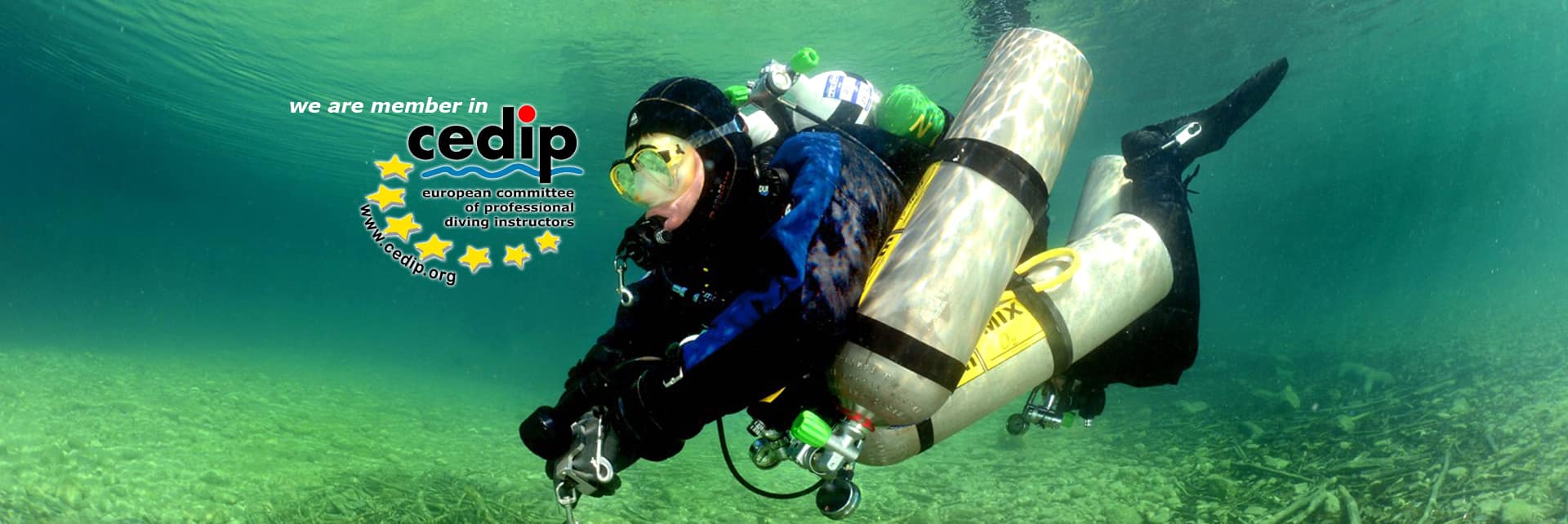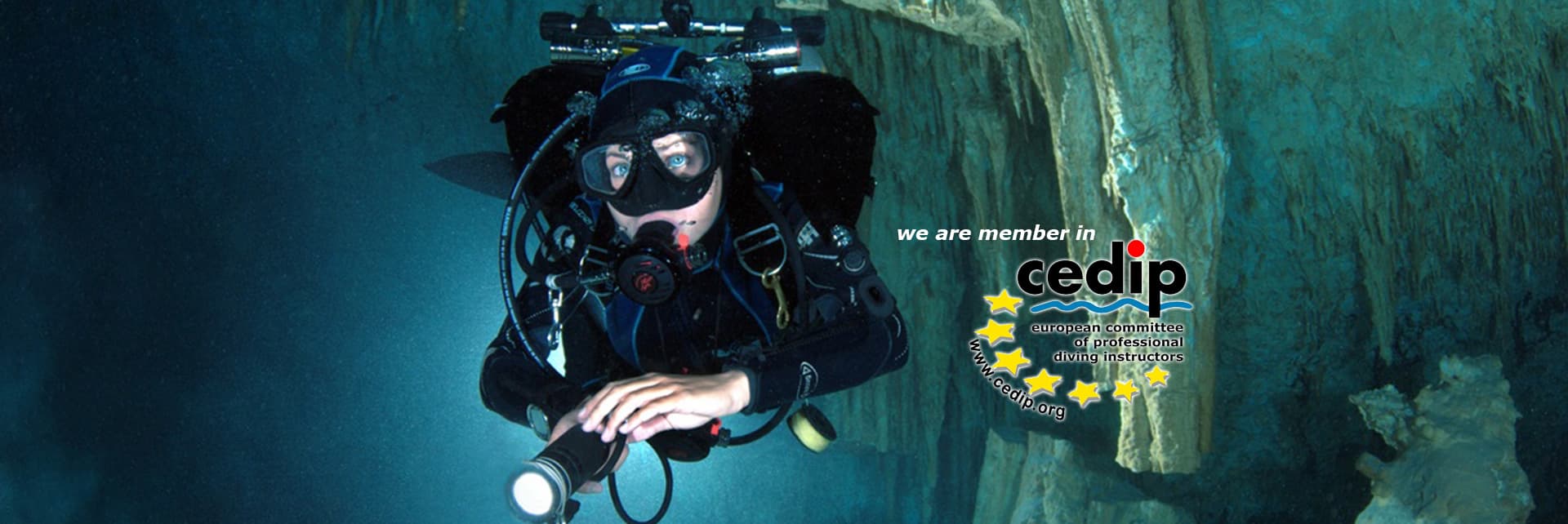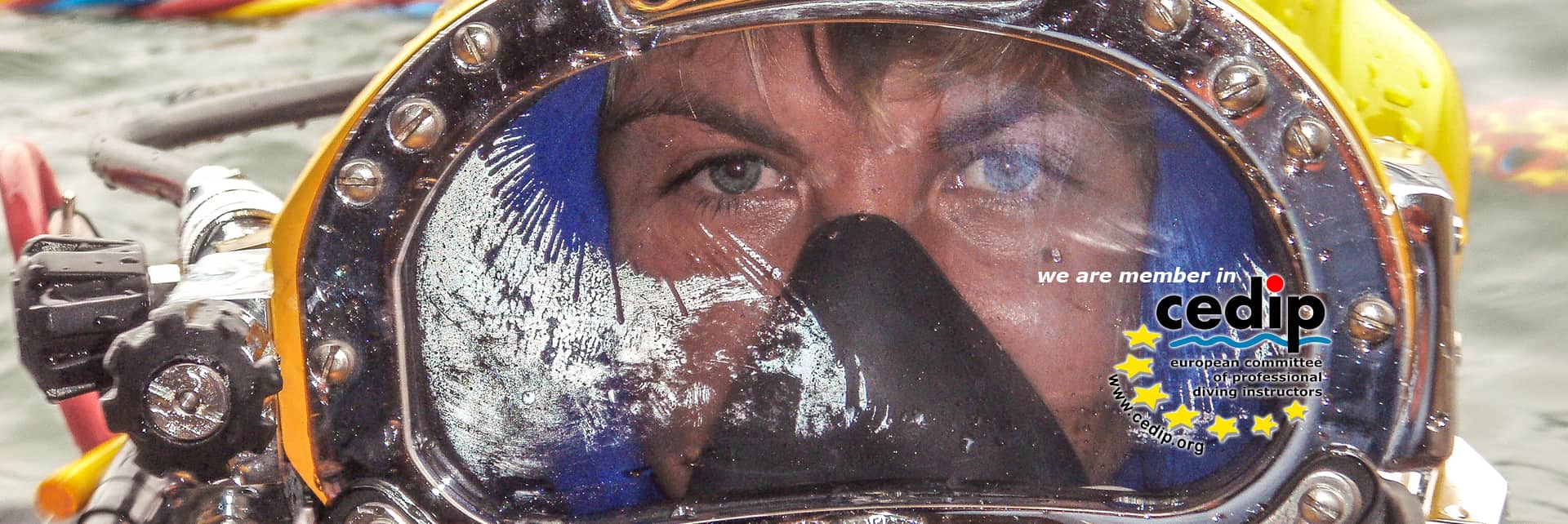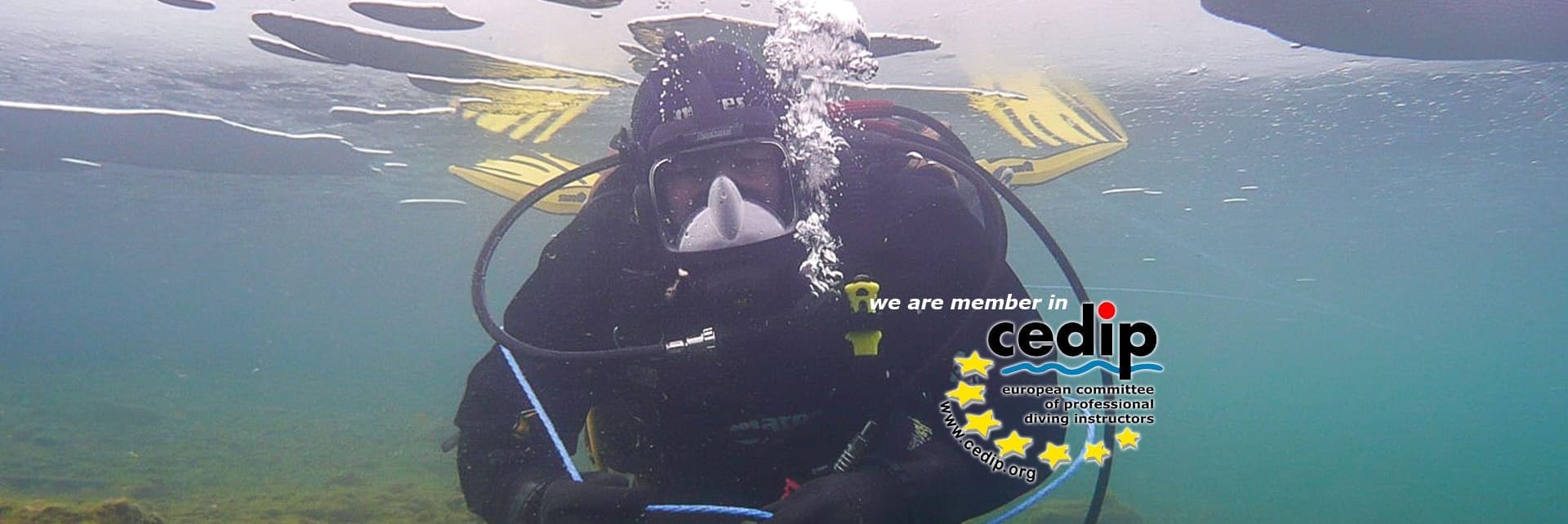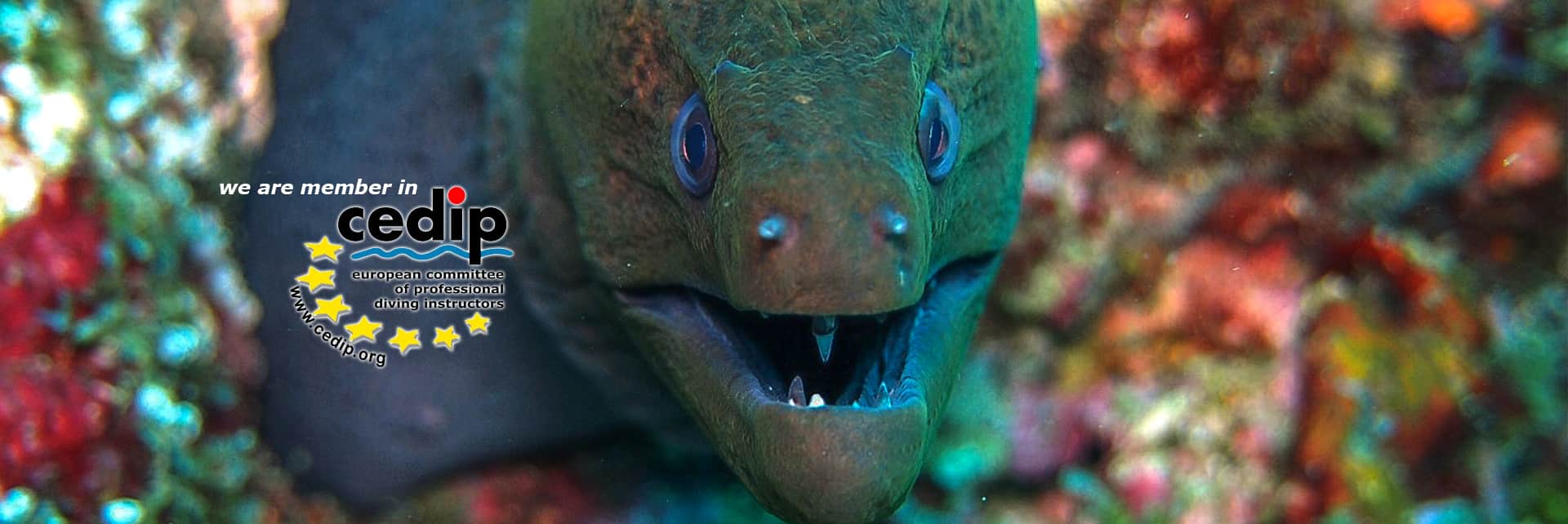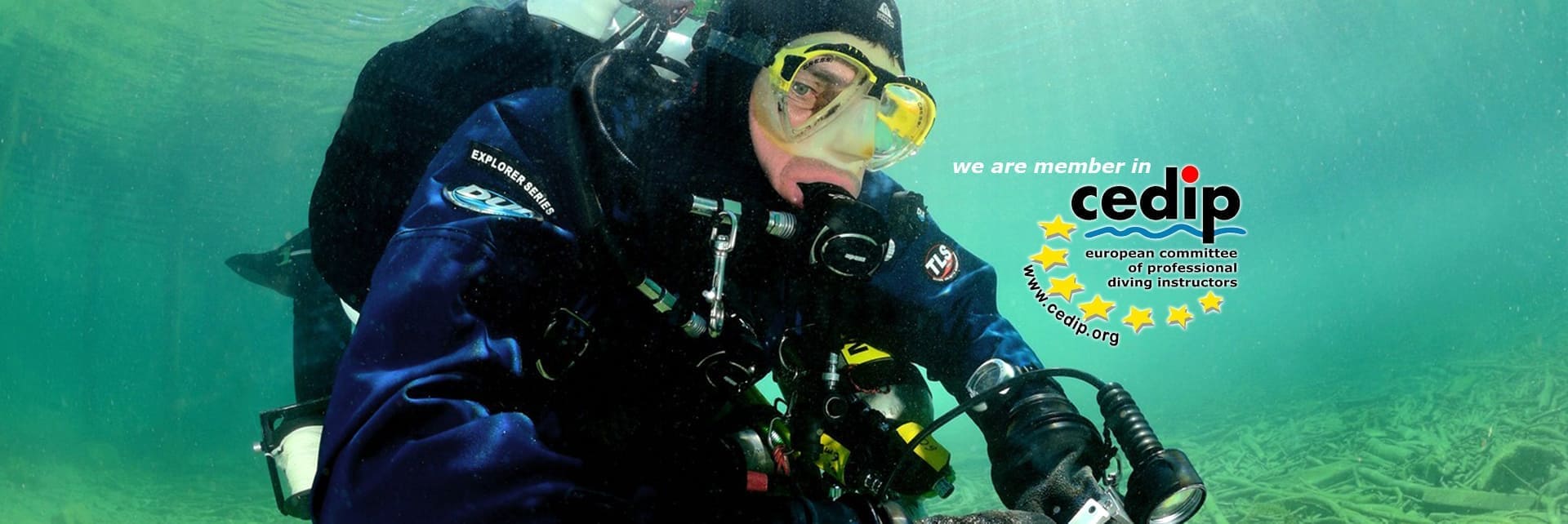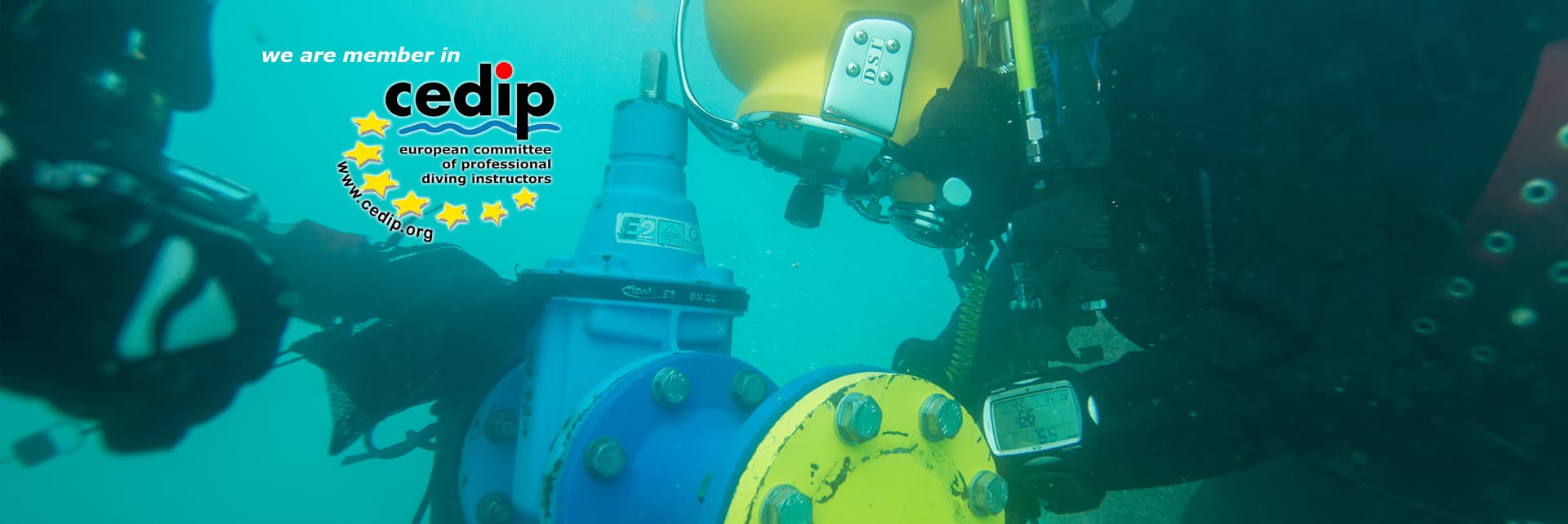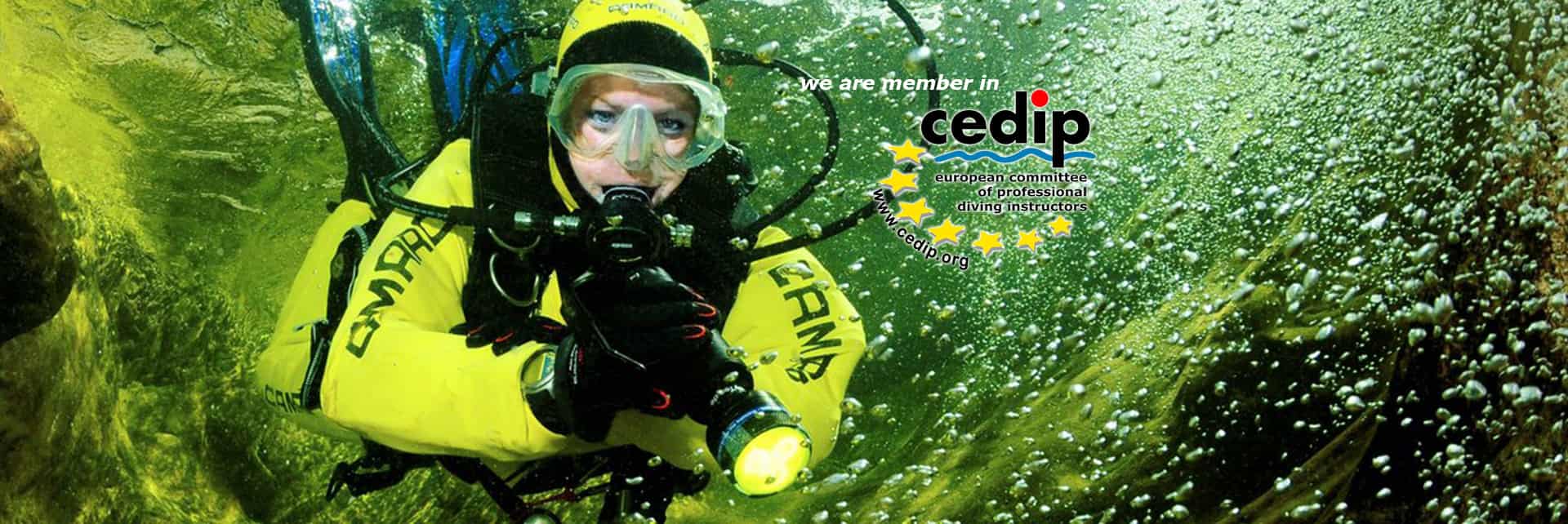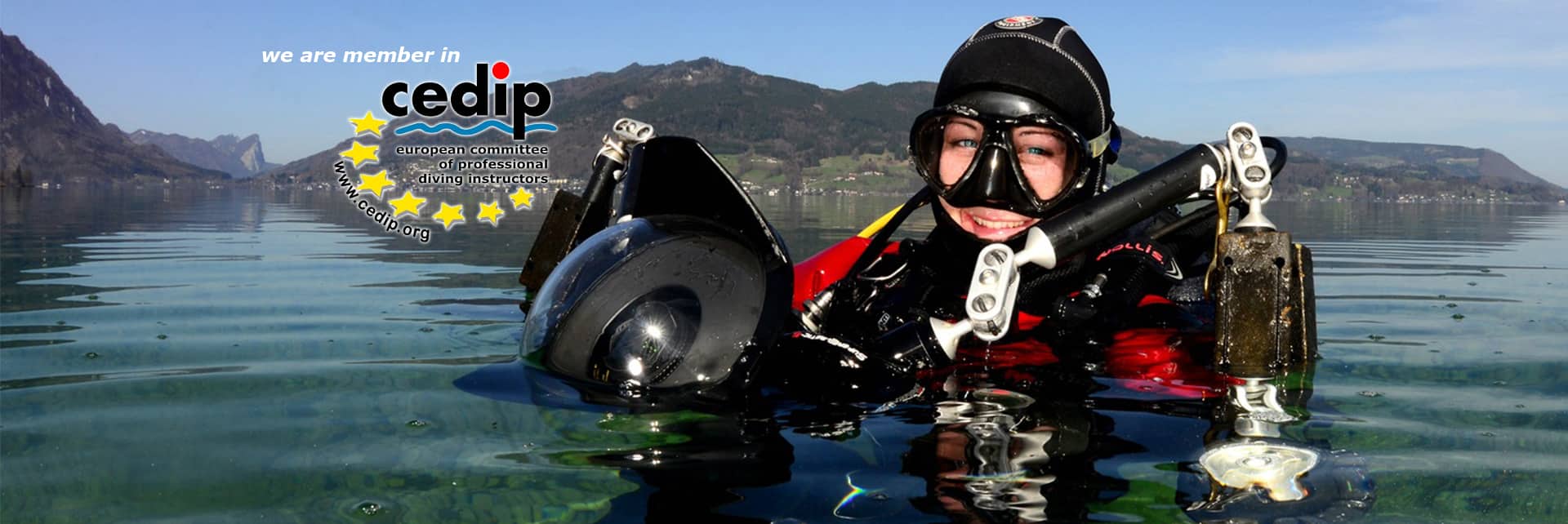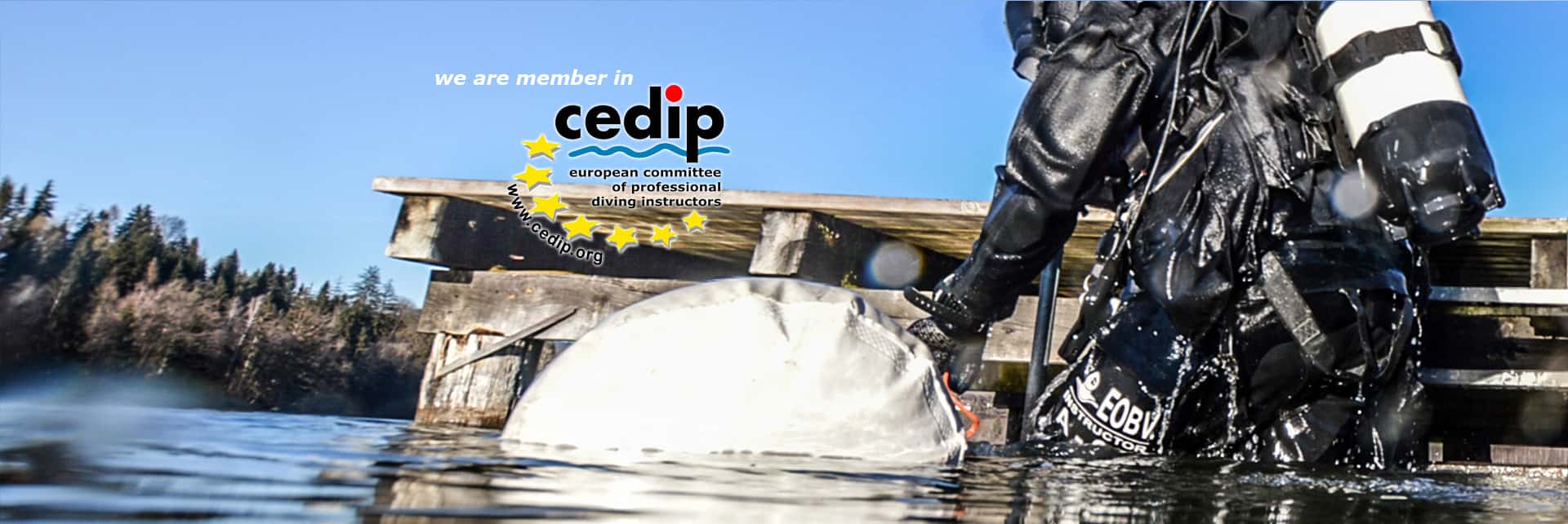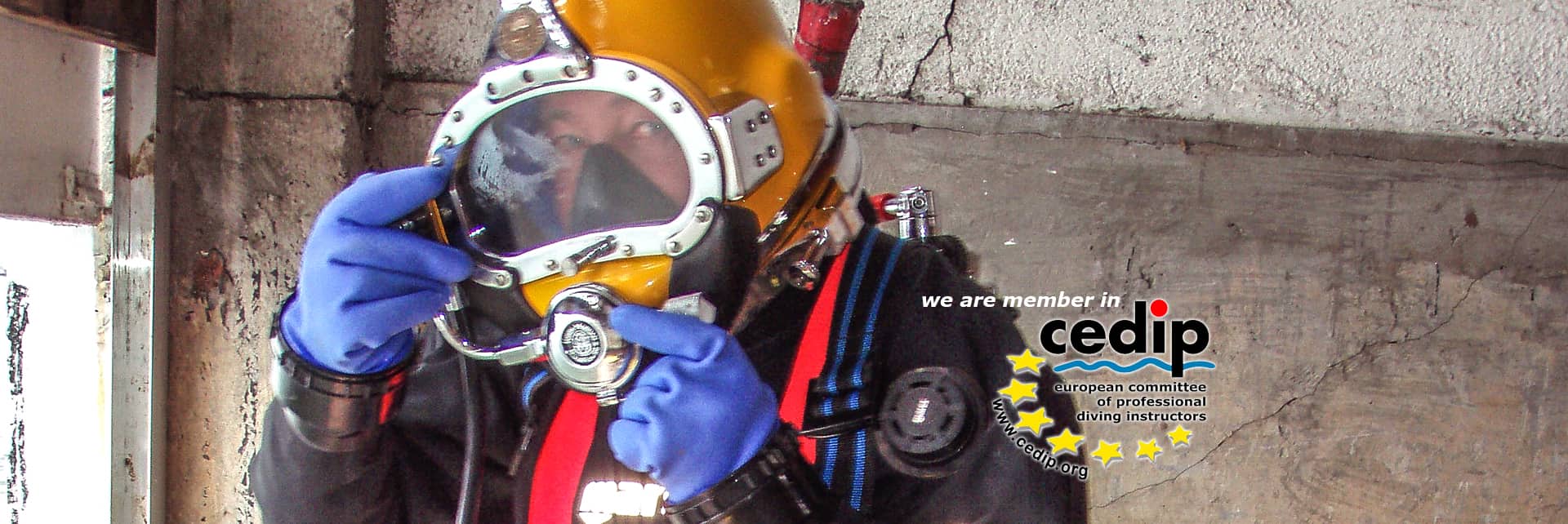The EOBV
professionalism and competence
The First Austrian Association of Professional Diving Instructors
“Police, military, fire brigade and water rescue” already dive with us. And when are you coming?
The EOBV once asked this question in one of its Dive News, after decades of work in the recreational diving sector, after the first steps towards professional diving had been taken.
We look back to the beginnings of state empowerment and cooperation with the Federal Ministry of Defense. After a long period of preparation (the first talks took place in 2005), the first steps to a professional diving level were taken and then the time had come. The BMLV (after a thorough examination of the training guidelines and quite tempting offers from other training organizations) finally decided in favor of the EOBV because of its competence. Among other things, the decisive factors were the well-founded training guidelines and the traceability of these guidelines as well as the principle of the EOBV which reads: “The EOBV and its diving instructors do not sell diving certificates, the EOBV and its diving instructors teach diving from beginners to professionals”.
After the BMLV had trained according to its own guidelines for decades, it was not possible to simply say: “From today we will also train like the EOBV”. For this reason, from 03.03. to 07.03.2008 the diving instructor and an army diving instructor of the diving teaching group of the BMLV a diving instructor seminar of the EOBV.
The focus of this seminar was, among other things, the latest medical findings, the technical aspects, diving accidents from the point of view of the expert and their processing, as well as the association philosophy of the EOBV and its role in the CEDIP. The participants of the BMLV were enthusiastic about the professionalism and expertise of the EOBV and its speakers. Which hasn’t changed to this day. In the course of our diving instructor seminars, professional divers from various special units always comment positively on the high level and competence of the EOBV.
The final exam was passed with flying colors by both participants. At that time it was a pleasure to welcome them as new diving instructors of the EOBV. It should also be mentioned that the participants in the next army basic diving course (beginning April 2008) were trained as EOBV divers before they could train as combat swimmers or pioneer divers. Which hasn’t changed to this day.



Since the EOBV is the only diving association in Austria that has the “right” (state authorization) to issue certificates in accordance with §11 Para. 1 Z 1 of the Proof of Expertise Ordinance (FK-V) BGBI. II No. 13/2007 we are authorized to certify signal persons, research and engineering divers as well as working divers. This means that the path to professional diving also leads to EOBV. Which should also answer the question that is asked again and again: “What is different about the EOBV?”
Military units such as the demining service or the Jagdkommando as well as police units and some state fire service associations train their divers according to the guidelines of the EOBV, with this standard being expanded to include operational tactical training.
As a state-authorized diving association, it is also the task of the EOBV to propose and introduce proposed changes and contemporary legal provisions in the event of various changes in the law relating to the compressed air and diving work regulation and employee protection, as well as to provide educational work for various associations and organizations. Together with the CEDIP, the EOBV is also active on an international level.
Here is a little introduction of the police Cobra / DSE diving group:
The DSE diving group of the police (Directorate for Special Units Deployment Divers) currently has 16 deployment divers who search for evidence at a depth of up to 100m. They defuse underwater explosive devices, carry out safety measures in the water during state visits and are used as combat swimmers in an emergency. The police unit has state-of-the-art equipment and diving equipment. Depending on the type of operation, diving is carried out with autonomous compressed air diving equipment as well as the most modern mixed gas-capable rebreathers, combat swimmer operations are carried out with suitable oxygen rebreathers and various special equipment.
The DSE group is broken down into 12 EKO Cobra divers and 4 ESD divers. The divers of the ESD (defusing service) also practice activities such as crime scene investigations after criminal acts, information evaluation after diving accidents, explosive attacks and much more. (Police diving operations manager) and are requested by colleagues on land if necessary, for which there are 3 Cobra diving bases in Austria, which are used depending on the area of operation.
Brief overview of the training units:
Basic diving course 8 weeks
Combat swimmer course 5 weeks
Explosive Authorization Course 2 weeks
Underwater explosives officer course 1 week
USBV/UW course 3 weeks
Mixed gas course JJ 3 weeks
Motor boat license 1 week
Since the EOBV repeatedly has to do with police and military divers at its diving instructor seminars, and some of these are also EOBV diving instructors, we can proudly state:
Everyone who really understands something about diving and doesn’t just want to sell certifications, dive according to the guidelines of the EOBV.



Source: EOBV / DSE Photos: EOBV / Fire Brigade Diver Burgenland
